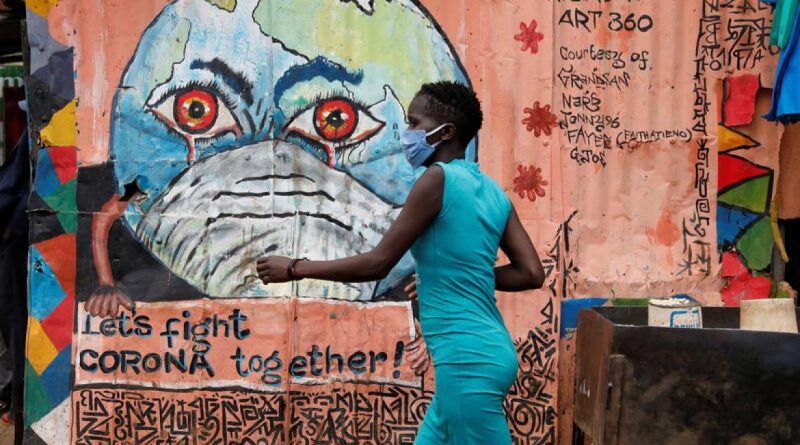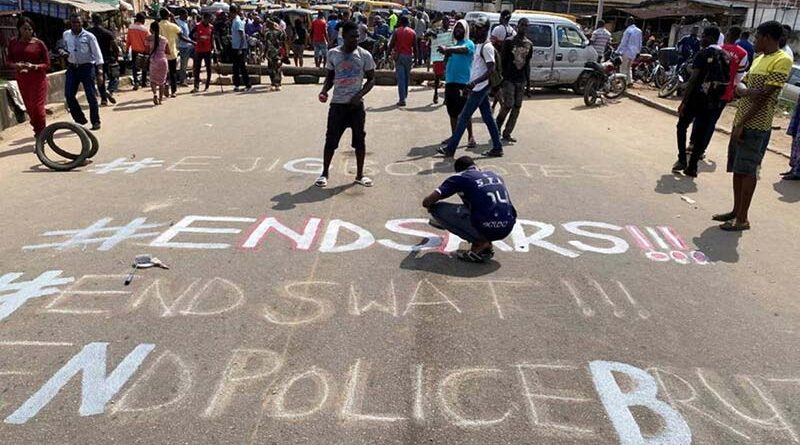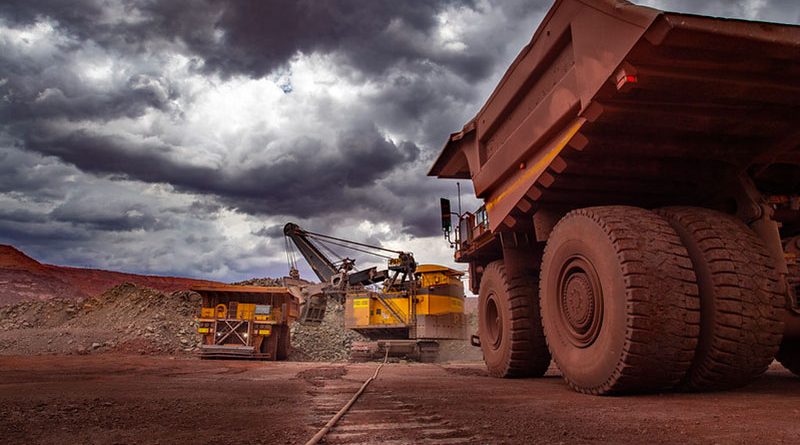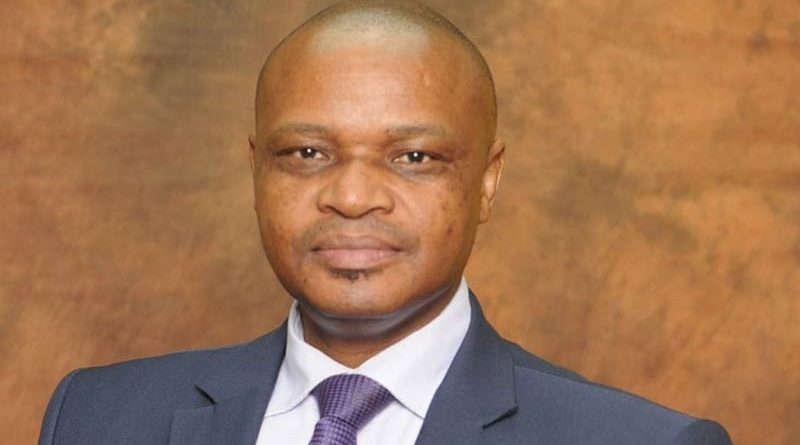ETHIOPIA can jail people for up to two years if they deliberately violate restrictions aimed at curbing the spread of COVID-19, the attorney general’s office said, amid concern that citizens are becoming lax after a state of emergency was lifted.
The restrictions prohibit shaking hands, not wearing a mask in a public place, seating more than three people at a table or not keeping “two adult steps” – around six feet – apart.
“Now it is as if COVID is no longer there, the public is not taking care,” Health Minister Lia Tadesse tweeted on Thursday. “This will cause a possible increase in the spread of the disease and might be a threat to the nation.”
Ethiopia, Africa’s second-most populous nation and a regional powerhouse declared a state of emergency in April to curb the spread of the pandemic. It was lifted in September.
The health ministry has recorded 91,118 COVID-19 cases, 1,384 deaths and 44,506 recoveries so far.
The disease peaked there toward the end of August, but it is difficult to know the true picture because testing has been also scaled back due to limited resources. At least 79 people died of COVID-19 in the past week, the health ministry said, but less than 2% of deaths are formally recorded.
The new law permits fines and imprisonment for up to two years for anyone breaks the restrictions, the attorney general’s office said in a statement on its Facebook page on Wednesday.
Ethiopia also postponed its regional and parliamentary elections scheduled for August due to the outbreak. They are expected to be held next year.
Africa has mostly not seen the huge wave of infections and deaths that have swept across Europe and the Americas. Experts say a much younger population, immediate measures to contain the virus and having a more rural population have all helped keep cases down.
But many African leaders are urging vigilance, concerned that any surge in cases could overwhelm rickety public health systems. – Thomson Reuters Foundation.
Source: The African Mirror
NIGERIA’S biggest city Lagos and several states were under curfews as unrest rooted in anti-police protests broke out again following a day of violence, including the shooting of civilians by security forces.
Fires burned across Lagos and residents reported hearing gunfire despite President Muhammadu Buhari’s appeal for “understanding and calm”.
Armed police tried to enforce a round-the-clock curfew in the commercial capital, setting up checkpoints. But groups of young men blocked a number of major roads with overturned traffic signs, tree branches and rocks. Smoke billowed from buildings that were ablaze.
Video verified by Reuters showed armed police in the Yaba area of Lagos kicking a man as he lay on the ground. One officer fired into his back and dragged his limp body down the street.
Images taken after the incident showed crowds gathering and burning tyres with thick black smoke, and more police gathering with guns drawn and pointed.
Rights group Amnesty International said the Nigerian army and police killed at least 12 peaceful protesters at two locations in Lagos – Lekki and Alausa – on Tuesday.
At least 56 people have died across Nigeria since nationwide protests began on Oct.8, with about 38 killed on Tuesday alone, it said.
A Lagos police spokesman did not immediately respond to a text message and phone call seeking comment.
Thousands of Nigerians, many driven closer to poverty by the economic fallout from the coronavirus pandemic, have joined the protests that initially focused on a police unit, the Special Anti-Robbery Squad (SARS).
The unit – which rights groups have long accused of extortion, harassment, torture and murder – was disbanded on Oct. 11 but the protests have persisted with calls for more law enforcement reforms.
Governor Babajide Sanwo-Olu imposed the curfew on Lagos on Tuesday.
But a shooting incident that night at a toll gate in the Lagos district of Lekki, where people had gathered in defiance of the curfew, appeared to mark the worst violence since the protests began and drew international concern over the situation in Africa’s most populous country, a major OPEC producer.
Governor Sanwo-Olu said 30 people were hurt in the shooting. The United Nations secretary-general said there had been “multiple deaths” and urged authorities to de-escalate the situation.
Four witnesses said soldiers had fired bullets and at least two people had been shot. Three witnesses said the gate’s lights were turned off before the shooting began. One said he saw soldiers remove bodies.
The Nigerian Army said no soldiers were at the scene.
Inyene Akpan, 26, a photographer, said more than 20 soldiers arrived and opened fire as they approached the protesters.
Witness Akinbosola Ogunsanya said the lights suddenly went out around 6:45 P.M. (1745 GMT) and men came to take down CCTV cameras before. Minutes later, soldiers in uniform walked towards the crowd, shooting as they walked, he said. He saw about 10 people being shot and soldiers removing bodies, he said.
Another witness, Chika Dibia, said soldiers hemmed in people as they shot at them.
Henry Kufre, a television producer, said the atmosphere had been peaceful and people were singing the national anthem before the site was plunged into darkness and the shooting began.
COMMITTED TO JUSTICE
President Buhari said on Wednesday he was committed to providing justice for victims of brutality, and that the police reforms demanded by the demonstrators were gathering pace. He did not refer to the shooting at the toll gate.
Sanwo-Olu visited hospitalised victims of what he referred to as the “unfortunate shooting incident” in Lekki. He said 25 people were being treated for injuries and two were in intensive care.
“I recognise the buck stops at my table and I will work with the FG (federal government) to get to the root of this unfortunate incident and stabilise all security operations to protect the lives of our residents,” Sanwo-Olu said.
Unrest also gripped other parts of southern Nigeria. Among states imposing restrictions was the oil production hub of Rivers State, including a curfew in parts of oil city Port Harcourt.
Rivers Governor Nyesom Wike said criminals attacked and destroyed police stations and court buildings in parts of the state.
In South Africa, hundreds of Nigerians carrying placards demanding “a new and better Nigeria” marched to the Nigerian High Commission (embassy) in Pretoria. Protesters also rallied outside the Nigerian embassy in London.
Nigeria sovereign Eurobonds fell more than 2 cents on the dollar on Wednesday. One analyst said the protests might trigger a resumption of attacks on the country’s oil facilities, potentially hitting its main source of foreign earnings.
“The Niger Delta militants…have reportedly shown support for the (protest) movement. Should the protests escalate, we could see attacks resume on the oil and gas facilities,” said Janet Ogunkoya, senior research analyst at Tellimer Research. – Thomson Reuters Foundation.
Source: The African Mirror
ANGLO American’s South African division is being sued over allegations of negligence at a lead mine it part-owned in Zambia nearly 50 years ago, according to a class action filed in South Africa’s High Court.
South African law firm Mbuyisa Moleele and UK-based Leigh Day said they filed the suit “on behalf of a class estimated to comprise more than 100,000 individuals” thought to have been poisoned by lead from the mine in Zambia’s Kabwe district.
“The application is brought by 13 representative plaintiffs on behalf of children under 18, and girls and women who have been or may become pregnant in the future,” the two law firms said in a statement.
Anglo American said it would review the claims and “take all necessary steps to vigorously defend its position”.
It said it was one of a number of investors in the company that owned the mine until the early 1970s, when it was taken over by the Zambian government, but was “at all times far from being a majority owner”.
“Furthermore, in the early 1970s the company that owned the mine was nationalised by the Government of Zambia and for more than 20 years thereafter the mine was operated by a State-owned body until its closure in 1994,” it said in an emailed statement to Reuters.
The Zambian mines ministry did not immediately respond to requests for comment.
The lawsuit alleges Anglo American South Africa (AASA) is liable for emissions of lead into the local environment due to deficiencies in design, and for failing to ensure the clean-up of contaminated land or that ZCCM, a state-owned company which took over the mine in 1974, was warned of the lead hazard.
The lawsuit does not involve any other company.
‘TOXIC LEGACY’
The Zambian government sold stakes in ZCCM between 1992 and 2000, leaving it with a 17% share of the renamed ZCCM-IH, which holds minority stakes in mining projects. ZCCM-IH did not immediately respond to a request for comment.
“When one considers the period over which experts assess that most of this pollution occurred, and (AASA’s) role in managing or providing technical and medical direction and advice during that time, there is a strong case for legal responsibility to be laid at Anglo’s door,” said Leigh Day partner Richard Meeran.
An August 2019 report by Human Rights Watch found more than one-third of the population of Kabwe lived in lead-contaminated townships because of the mine’s activities. The report called on the Zambian government to take responsibility. It said ZCCM-IH had taken some measures to address the effects of lead pollution but they had not been addressed in “any comprehensive way”.
Exposure to high levels of lead could impair growth, damage organs such as the liver and brain and increase the risk of miscarriage, the HRW report said.
Zambia’s then Minister Richard Musukwa said at the time of the report that the government was testing soil samples to ascertain the extent of poisoning and that some remedial measures were being carried out through a broader environmental project in the country’s Copperbelt region.
The class action seeks compensation from Anglo American for children, girls and women with lead poisoning who have or may become pregnant, as well as blood lead screening, clean up and remediation of the area. – Thomson Reuters Foundation.
Source: The African Mirror
AFRICAN MIRROR REPORTER
AS South Africa’s crackdown on COVID-19 corruption gains steam, it has emerged that a staggering 67% of the R15-billion spent by the government on personal protective equipment (PPE) is suspicious and now the subject of high-level investigations.
SA’s law enforcement agencies, brought together by President Cyril Ramaphosa to co-ordinate their investigations into COVID-19 related fraud and corruption, have revealed to the country’s parliament the true extent of the suspected graft and disclosed that more arrests would be made, some as early as tomorrow.
The Special Investigating Unit (SIU), the Hawks – the elite crime busters – and the National Prosecuting Authority (NPA) briefed parliament’s standing committee on public accounts on the progress made in bringing those suspected of stealing COVID-19 billions to book.
Advocate Andy Mothibi, head of the SIU, revealed that of the R15.6-billion spent by the SA government on PPEs, an expenditure of R10.5-billion, representing 67% of the total budget, is under investigation.
Mothibi further disclosed that of the R10.5-billion under investigation, steps have been taken, through the SIU’s special tribunal, to set aside contracts worth R223-million and recover the losses.
He said the SIU has finalised 20 cases and referred them to the NPA, among them are five cases involving the Gauteng Health Department, where the prosecuting authority is expected to take decisions whether or not to prefer criminal charges against high ranking officials implicated in irregularities involving over R4-billion spent on PPEs.
Mothibi said the SIU had uncovered instances where personal protective equipment was overpriced, procurement rules flouted and services not delivered despite money being paid.
General Godfrey Lebeya, head of the Hawks told parliament he has formed special teams in SA’s nine provinces to probe over 80 000 suspicious transactions. He said he expected some successes from the team in the form of arrests.
Lebeya said that the Hawks were dealing with a huge influx of cases, the bulk of which were referred to by Auditor-General Kimi Makwetu, who in a special report on COVID-19 corruption highlighted 80,000 exceptions or illegal payments that needed to be followed up.
South Africa has recorded more than 700,000 coronavirus infections, the most on the African continent, with millions of its citizens losing their jobs or being pushed deeper into poverty this year.
Ramaphosa has likened those responsible for corruption during the pandemic to a pack of hyenas circling wounded prey. – Thomson Reuters Foundation.
Source: The African Mirror




